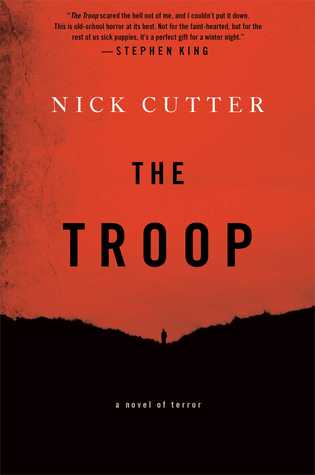I did it.
I set out at the beginning of 2016, green and naive, with a commitment to myself. I would find more time to read this year. Not wanting to be vague and allow myself off the hook, I set a number: 50. I promised myself I would read 50 books, and monthly reflect on the things they had taught me. On December 29th, with two days to spare, I read the last page of my 50th book. I did it.
If there was ever a year in which I needed to have a reading project around which I could contextualize the things going on around me, 2016 was it. So many things happened this year. In March, I got engaged to the love of my life, Angela. Brexit and the U.S. election changed the way so many people think about the direction our societies are headed. Dear friends had children and started families. The world responded lukewarmly to a major humanitarian crisis in Syria. I began a new job, which has reinvigorated me in many ways. A torrent of icons and difference makers passed away. But through it all, I have had this project. It has been a frame, a lens through which to grapple with, escape from, and hopefully understand the things around me this year.
If you read any of these reflections, thank you. If you read a book based on my thoughts offered in these posts, I hope you liked it. Next year I have a different project in mind, which I will elaborate on below. But for now, let’s say goodbye to 2016.
Here are the books I read in December, in order, and the words therein that stayed with me:
#48

“‘When any civilization is dust and ashes,’ he said, ‘art is all that’s left over. Images, words, music. Imaginative structures. Meaning—human meaning, that is—is defined by them. You have to admit that.'” – Oryx and Crake by Margaret Atwood
It is somewhat strange to me that I had never read this novel before now. I like Margaret Atwood well enough – she is a Canadian icon and a prolific novelist, surely. And I certainly read The Handmaid’s Tale in high school. But for whatever reason, I never got around to Oryx and Crake until now.
On the whole, I liked it. It was neither the best nor the worst book I read this year, and neither by a good distance. It was squarely middling; dystopian fiction is very tired, though this was a well-crafted and exquisitely imagined dystopia; parables can be tiresome, though this one was light enough at times not to seem heavy-handed. Its real redemption, though, was its author. Atwood is so brilliant that you almost don’t notice that you are reading the same old tropes that post-apocalyptic fiction has always relied on, because she fills it with her own wondrous observations on the human condition. I do not think that Oryx and Crake, the story, says much new or noteworthy about the human condition; Margaret Atwood, however, says plenty. The reflection above, on the semi-permanence of art, is not original, but it has seldom been posed so eloquently. Of course, even art passes away eventually. But for much longer than the span of any individual life, the imaginative structures we create are the ways in which we will be understood by those who come after us. And if Oryx and Crake is how Margaret Atwood makes semi-permanent record of her time on this planet, well, she could have done a lot worse.
#49

“That Tom Thomson’s painting has become part of the national identity, one of the types of symbols that Canadians share as part of their common language, is a grand legacy for a man who had little art training, but who took the greatest pleasures in life from painting out under the open sky.” – The Many Deaths of Tom Thomson by Gregory Klages
Speaking of the art you leave behind as record of your existence… Tom Thomson has long been a fascinating and intriguing figure in Canadian history for me. Any regular reader of this blog knows that Algonquin park holds a very special place in my heart – Angela and I travel there every summer, and are even planning to honeymoon there this September. Tom Thomson, both his art and the story of his mysterious death, are an intrinsic part of the mythos of Algonquin. Few artists have ever managed to capture the beauty of the park as he did, and few mysteries have captured the imaginations of more Canadians than his drowning death on Canoe Lake.
In this essay, Klages does a tremendous job comparing available evidence with colloquial tales and rumours concerning Thomson’s death, to try to bring some clarity to what happened the day the artist and accomplished outdoorsman drowned in Canoe Lake. It is exemplary as an historical investigation, but also pays excellent tribute to an artist whose work became immortal only after he was able to create no more.
#50

“All of these thoughts unsettled Bo and he would have liked to ask someone, but adults hated to be asked questions they could not answer.” – All the Beautiful Things by Kathryn Kuitenbrouwer
It always frustrates me when I hear people ten years younger than me talk about reading the same books in high school that my parents read when they were that age. I have nothing against the classics; I just feel that our endless fixation on the same works published 50 or more years ago creates in some people a belief that nothing worth reading, worth really getting into, is being written today. This book is the perfect proof that that is not so.
Kathryn Kuitenbrouwer has written a masterpiece of Canadian literature. My heart soared and plunged with Bo as he navigated the already perilous waters of growing up, all the while having to look after (and later find) his layabout mother and a sister suffering birth defects from Agent Orange. Kuitenbrouwer writes with an innocence and grace that allows the purity of Bo’s heroism to shine. There is so much good stuff here: wonderful, eloquent prose; delicate family dynamics balanced on the edge of a knife; lessons about life and adolescence; a distinct and unabashed Canadiana.
Highly recommended
*****
So there you have it. 50 books, and words from each that will stay with me beyond this year. Thank you to anyone who took a moment to check in along the way, either by reading the blog or just asking how it was coming. Thank you as well to the people who recommended each of the books I read this year – I selected very few of the 50 myself, and your taste was impeccable. I wanted to read more broadly and diversely this year, exploring genres and authors I never would have chosen for myself, and in that I think I was successful.







